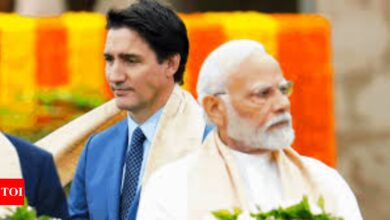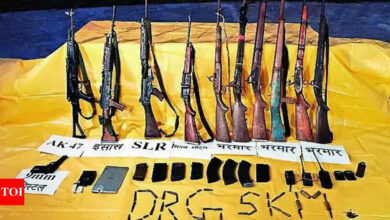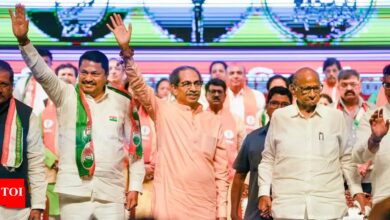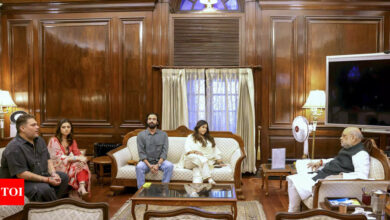India
Final design of Vande Bharat sleeper trains stalled after railways look for more toilets, luggage space and pantry car | India News – Times of India
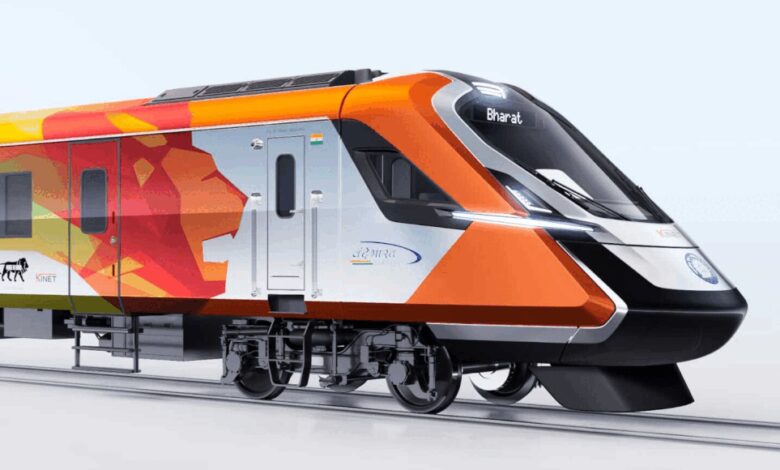
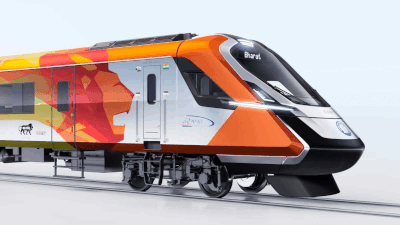

“If Indian Railways delays the process, it will definitely impact the implementation timeframe. We would like to start production soon. I feel that what we are discussing can be resolved all at once, within two hours. We spend months sending letters and waiting for the explanation,” said Kirill Lipa, CEO of TMHthe largest shareholder of the JV that has been awarded the contract to produce 1,920 Vande Bharat sleeper coaches.
Kinet Railway Solutions, the SPV of TMH and PSU of Indian Railways, RVNL to execute the project, has bagged the contract worth Rs 55,000 crore for manufacturing Vande Bharat sleeper trains and the agreement was signed in September last year . TMH is among the top five railway companies in the world with more than 1 lakh manpower.
Lipa said until May this year that they hoped to roll out the first prototype of the train by the end of the year. But the Indian Railways sought changes in the design of the coaches and had to rework. “These changes create a need for time and additional budget,” he added. The SPV has requested compensation for the design changes.
However, he said they are hopeful of rolling out the prototype in the second quarter of next year and the contract calls for them to do so by the end of 2025.
An official TMH spokesperson said that while the original contract stipulated the production of 120 trains with 16 coaches each, 80 trains with 24 coaches each are now to be produced. Instead of the previous condition that there had to be three toilets in each carriage, Kinet must now provide four toilets and each train must have a supply car, which was not the case in the original tender conditions. The railways also looked for space in each carriage for baggage zones, which was not previously available.
A railway spokesperson said “technical changes” were being sought as per the contract agreement and Kinet provided the answers “after a pause of 4-5 months” and their response is under investigation. The railway said, “Looking at the future needs of passengers traveling on the Indian Railways network, it has been decided to opt for 24 coaches in future.”
Lipa said the composition of each train in terms of the number of coaches is not a problem at all, but design changes are a complex process. “It is not the design of the coaches themselves. The most important changes concern the design. For example, we were asked to expand the number of toilets. If you place this extra toilet in the coach, there doesn’t seem to be a problem. But the problem comes from technology. For this we need certain systems, and that means that you have to change the entire layout of the bus; reshaping the design and technical infrastructure within the bus. Something needs to change in terms of windows and seats. So if we have a number of deviations like this, it unfortunately sets us back in terms of design, because the old design is more or less completely finished,” said the CEO of TMH.
About the new requirement of a pantry car in every train, he said this is not just about cooking but it has to be done as per railway norms and fire alarm systems for safeguarding wires. “We need a very clear explanation from the customer about what exactly he wants in a pantry; what are the conditions. Electricity, heating and water supply are required. You have to lay certain cables and pipes in the train and not just in the one supply car. Once again, the trainset will be redesigned to some extent,” Lipa said.
He said that since these were significant changes compared to the original contract, they requested that the contract be terminated with changes to avoid any legal issues in the future. Lipa said they have sent letters to the Indian Railways, most recently on September 27. “We have sent official letters to the Indian Railways stating point by point what needs to be done if the contract is canceled and we are ready for it. No resignations have been made yet,” he added.
The CEO said that the issue was even raised last week at the India Russia Inter-Governmental Commission for Trade, Economic, Scientific and Cultural Cooperation (IRIGEC-TEC) meeting in Delhi, which was chaired by External Affairs Minister S. Jaishankar.
Lipa said: “We raised this issue at the meeting and we hope it was raised in the right way and at the right level. It is not that we are looking for any pressure from the Russian government, but we want the Indian Railways to give us important explanations. And for that we certainly need some support from the government leaders in India. I believe that after this meeting we will find solutions.”

